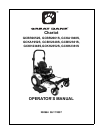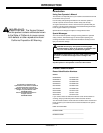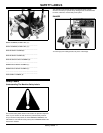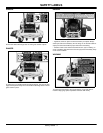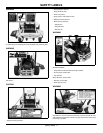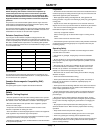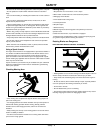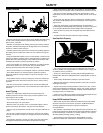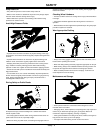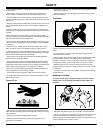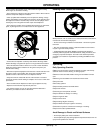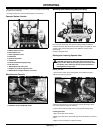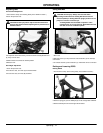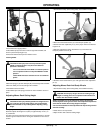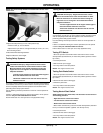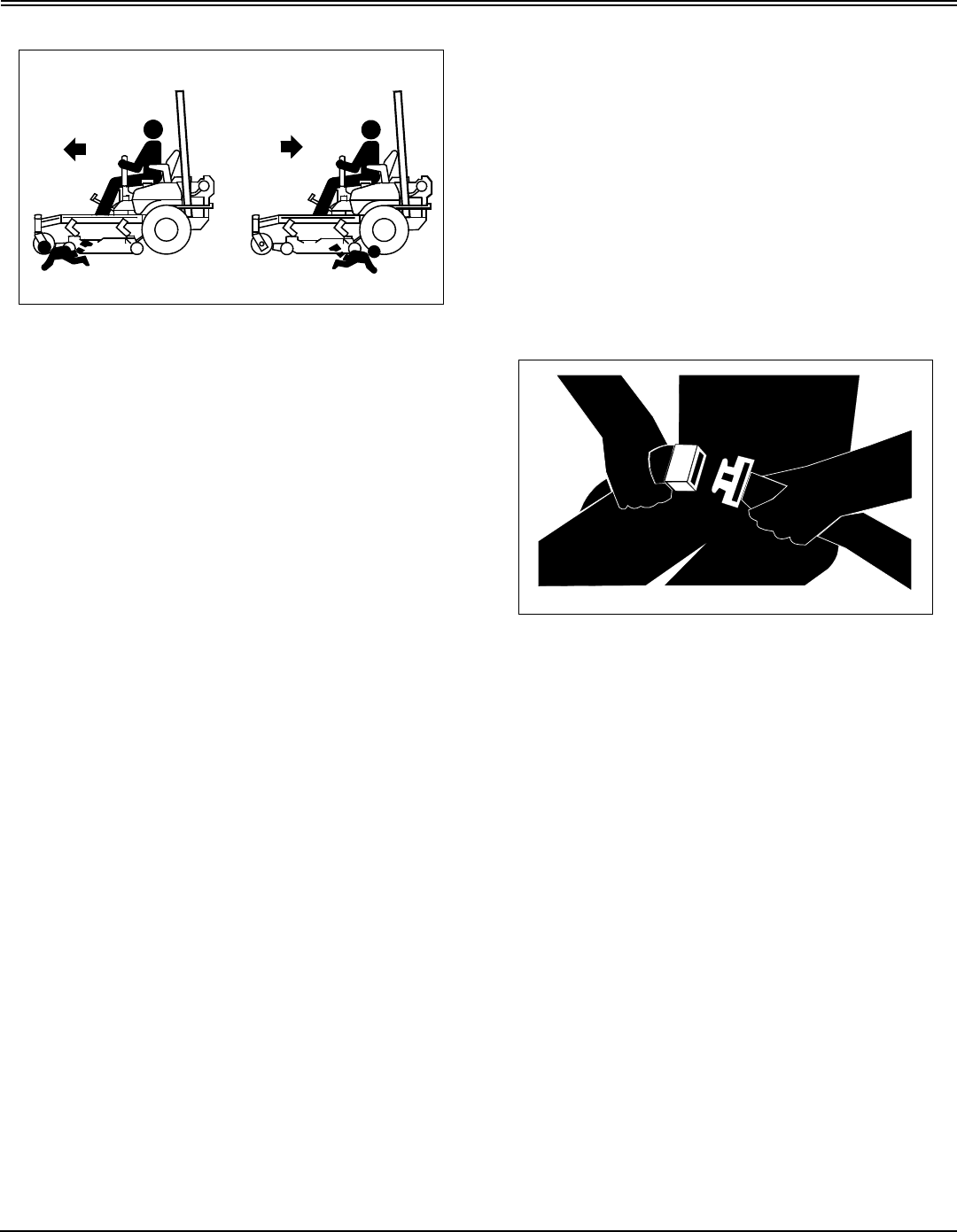
Safety - 7
SAFETY
Protect Children
• Death or serious injury can occur when young children associate having
fun with a lawn mowing machine simply because someone has given
them a ride on a machine.
• Children are attracted to lawn mowing machines and mowing activities.
They don’t understand the dangers of rotating blades or the fact that the
operator is unaware of their presence.
• Children who have been given rides in the past may suddenly appear in
the mowing area for another ride and be run over or backed over by the
machine.
• Tragic accidents with children can occur if the operator is not alert to the
presence of children, especially when a child approaches a machine from
behind. Before and while backing up, stop mower blades and look down
and behind the machine carefully, especially for children.
• Never carry children on a machine or attachment, even with the blades
off. Do not tow children in a cart or trailer. They can fall off and be
seriously injured or interfere with safe machine operation.
• Never use the machine as a recreational vehicle or to entertain children.
• Never allow children or an untrained person operate the machine.
Instruct all operators not to give children a ride on the machine or in an
attachment.
• Keep children indoors, out of the mowing area, and in the watchful eye
of a responsible adult, other than the operator, when a mower is being
operated.
• Stay alert to the presence of children. Never assume that children will
remain where you last saw them. Turn the machine off if a child enters the
work area.
Avoid Tipping
• Slopes are a major factor related to loss-of-control and tip-over
accidents, which can result in severe injury or death. Operation on all
slopes requires extra caution.
• If you feel uneasy on a hillside, do not mow it.
• Mow across slopes, not up and down.
• Watch for holes, ruts, bumps, rocks, or other hidden objects. Uneven
terrain could overturn the machine. Tall grass can hide obstacles.
• Choose a low ground speed so you will not have to stop or shift while on
a slope.
• Do not mow or operate machine on wet grass. Tires may lose traction.
Tires may lose traction on slopes even though the brakes are functioning
properly.
• Avoid starting, stopping or turning on a slope. If the tires lose traction,
disengage the blades and proceed slowly, straight down the slope.
• Keep all movement on slopes slow and gradual. Do not make sudden
changes in speed or direction, which could cause the machine to roll over.
• Use extra care while operating machine with grasscatchers or other
attachments, they can affect stability of the machine. Do not use on steep
slopes.
• Do not mow near drop-offs, ditches, embankments, or bodies of water.
The machine could suddenly roll over if a wheel goes over the edge or the
edge caves in.
• Follow the manufacturer’s recommendations for wheel weights or
counterweights for added stability when operating on slopes or using front
or rear mounted attachments. Remove weights when not required.
• Drive machine very slowly and avoid quick stops when attachment is
removed.
• Transport machine with decks lowered to improve stability.
Use Seat Belt Properly
• Use a seat belt when operating with the folding Roll-Over Protective
Structure (ROPS) in the upright position to minimize chance of injury from
an accident, such as an overturn.
• Do not use a seat belt when operating with the folding ROPS in the
folded position. Return the folding ROPS to the upright position as soon as
possible.
• Never modify, disassemble or attempt to repair the seat belt.
• Replace entire seat belt if mounting hardware, buckle, belt, or retractor
show signs of damage.
• Inspect seat belt and mounting hardware at least once a year. Look for
signs of loose hardware or belt damage, such as cuts, fraying, extreme or
unusual wear, discoloration, or abrasion. Replace only with replacement
parts approved by your Great Dane.
• Layers of heavy clothing can interfere with proper positioning of the seat
belt and can reduce the effectiveness of the seat belt.
Keep ROPS Installed Properly
• Make certain all parts of the ROPS are installed correctly if the ROPS
structure is loosened or removed for any reason. All ROPS hardware
should be tightened to the proper torque per manufacturer’s
recommendations.
• Any alteration of the ROPS must be approved by the manufacturer. The
protection provided by the ROPS will be impaired if the ROPS is subjected
to structural damage, is involved in an overturn incident, or is in any way
altered by welding, bending, drilling, or cutting.
• Never attempt to repair a damaged or altered ROPS. It must be
replaced to maintain the manufacturer’s certification of the structure.



